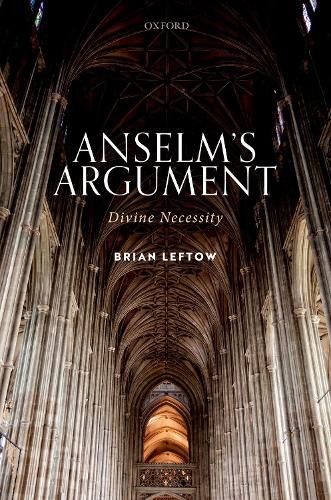Readings Newsletter
Become a Readings Member to make your shopping experience even easier.
Sign in or sign up for free!
You’re not far away from qualifying for FREE standard shipping within Australia
You’ve qualified for FREE standard shipping within Australia
The cart is loading…






Anselm of Canterbury gave the first modal ontological argument for God’s existence. Yet, despite its distinct originality, philosophers have mostly avoided the question of what modal concepts the argument uses, and whether Anselm’s metaphysics entitles him to use them. Here, Brian Leftow sets out Anselm’s modal metaphysics. He argues that Anselm has an absolute , broadly logical , or metaphysical modal concept, and that his metaphysics provides acceptable truth makers for claims in this modality. He shows that his modal argument is committed (in effect) to the Brouwer system of modal logic, and defends the claim that Brouwer is part of the logic of absolute or metaphysical modality. He also defends Anselm’s premise that God would exist with absolute necessity against all extant objections, providing new arguments in support of it and ultimately defending all but one premise of Anselm’s best argument for God’s existence.
$9.00 standard shipping within Australia
FREE standard shipping within Australia for orders over $100.00
Express & International shipping calculated at checkout
Anselm of Canterbury gave the first modal ontological argument for God’s existence. Yet, despite its distinct originality, philosophers have mostly avoided the question of what modal concepts the argument uses, and whether Anselm’s metaphysics entitles him to use them. Here, Brian Leftow sets out Anselm’s modal metaphysics. He argues that Anselm has an absolute , broadly logical , or metaphysical modal concept, and that his metaphysics provides acceptable truth makers for claims in this modality. He shows that his modal argument is committed (in effect) to the Brouwer system of modal logic, and defends the claim that Brouwer is part of the logic of absolute or metaphysical modality. He also defends Anselm’s premise that God would exist with absolute necessity against all extant objections, providing new arguments in support of it and ultimately defending all but one premise of Anselm’s best argument for God’s existence.